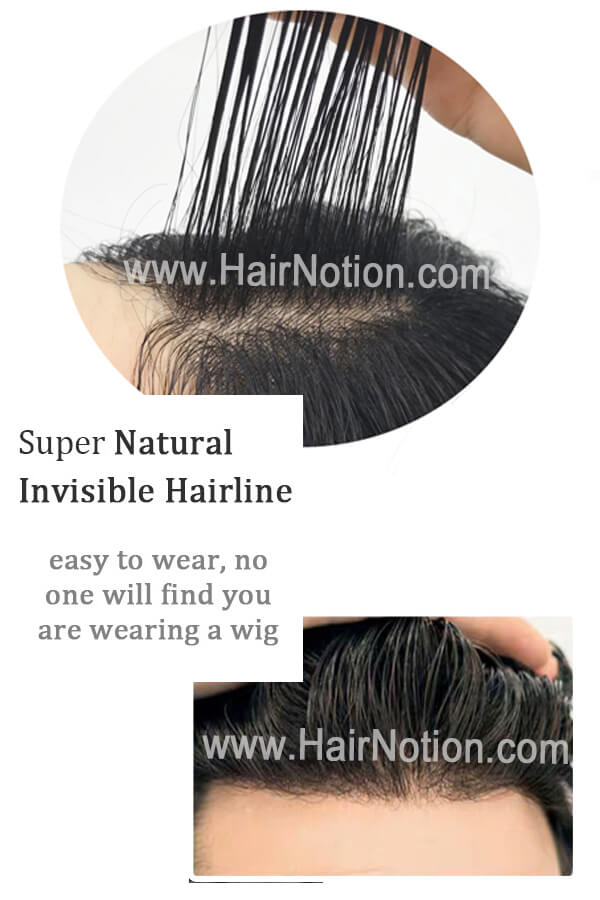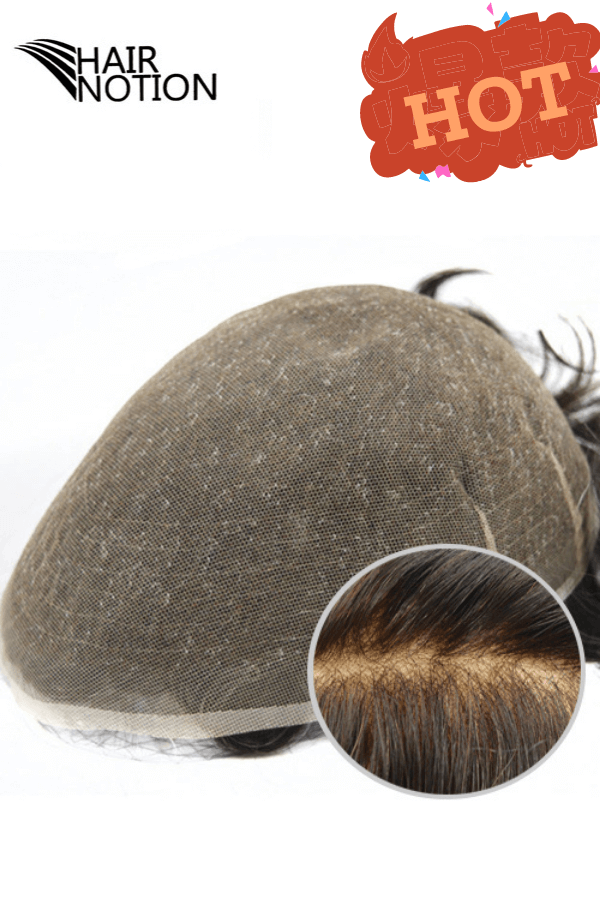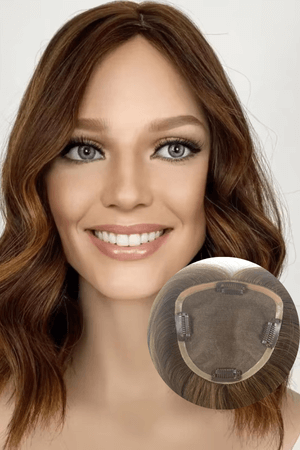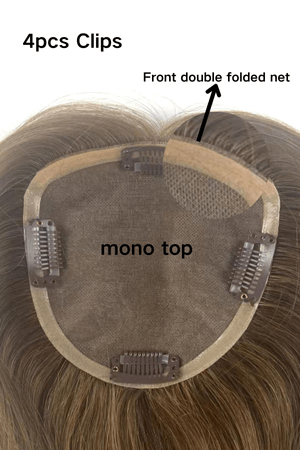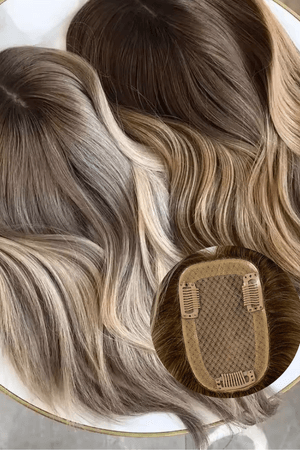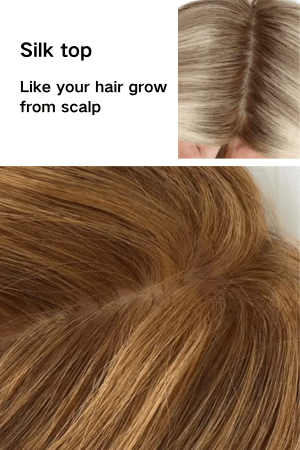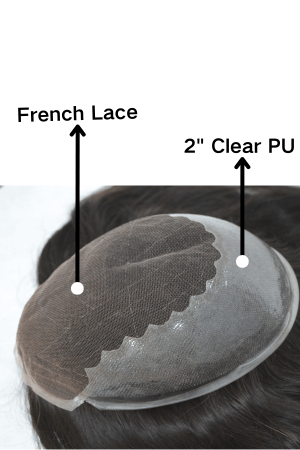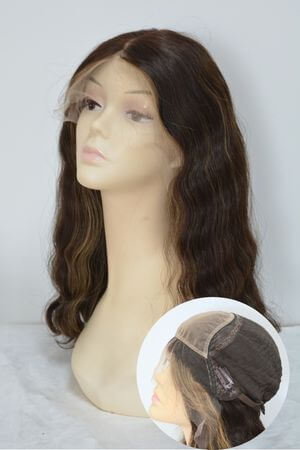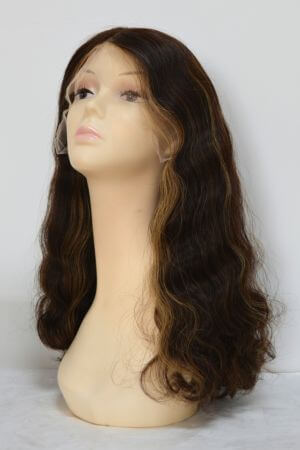Does Long-Term Wig Use Harm the Scalp?
For centuries, wigs have been used as a means to change one’s appearance. Today, men’s wigs for baldness are particularly popular among those looking to regain confidence and enhance their look.
Generally, people who wear wigs can be divided into two main groups:
One group consists of individuals who experience hair loss due to physiological or pathological reasons and need wigs to compensate for or conceal these deficiencies. This group typically requires long-term wig wear.
The other group includes those who have hair but want to pursue fashion or need to quickly change their style for specific occasions. This group rarely has long-term wearers.
Regardless of the need for long-term use, many people wonder before choosing to wear a wig:
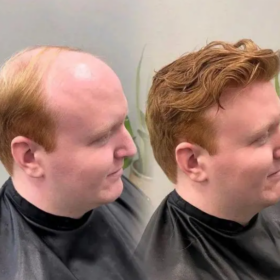

Does long-term wig wear cause harm to the hair or scalp?
First, it’s important to understand that wearing a wig does not necessarily damage the scalp. In fact, wearing a wig correctly can help protect the scalp from harsh weather, UV rays, and environmental pollutants.
Moreover, for those experiencing hair loss or affected by certain medications or illnesses, wigs can be a great option. They can enhance confidence and self-esteem, restore appearance, and provide a comfortable, convenient lifestyle.
However, it is undeniable that long-term wig wear comes with some potential risks:
Skin Allergies or Inflammation
Skin allergies or inflammation can occur if the wig is too tight or if the scalp is not properly cleaned and cared for. A tight wig can place pressure on the scalp, leading to discomfort, headaches, and in some cases, exacerbating hair loss. The correct approach is to ensure the wig is worn properly and not too tight, and to regularly clean both the wig and scalp to prevent irritation. Those with sensitive scalps should be especially cautious and consider using scalp care products.Fungal or Bacterial Infections
Accumulation of sweat, oils, and dirt on the scalp beneath the wig can create an ideal environment for bacteria and fungi, potentially leading to scalp infections. To avoid this, it’s crucial to regularly clean the scalp and wig. Additionally, taking the wig off at home allows the scalp to breathe and rest.Exacerbation of Hair Loss
Wigs themselves do not have toxic side effects and will not damage hair follicles or your natural hair quality. As long as the wig is worn correctly and proper cleaning and care are maintained, hair loss symptoms generally should not worsen. However, certain wig attachment methods, such as clip-ins, require securing the wig to existing hair, and improper handling may lead to traction alopecia. Care should be taken during application and removal.
It’s also worth noting that the type of wig can impact scalp health. For example, synthetic wigs are typically less breathable, leading to a buildup of sweat and oils, increasing the risk of skin irritation and infections. In contrast, wigs made from natural hair are more breathable and easier to manage. Additionally, the base material of the wig can also affect its breathability, with general rankings being: full skin < silk top < MONO mesh < lace mesh. Choosing a base that fits your needs is advisable.
In summary, whether wigs harm the hair or scalp depends on individual choices. Long-term wear of wigs, if not accompanied by proper care and cleaning, may indeed cause scalp issues. However, this does not imply that wigs themselves are harmful. They can cover gray hair, increase hair volume, help bald individuals address hair loss, and offer endless possibilities for many cosplayers.
In reality, many people have worn wigs for years with healthy scalps and have improved their lives and regained confidence thanks to wigs. Therefore, rejecting wigs is not a wise decision.
As long as you wear wigs correctly, clean them regularly, and occasionally give your scalp a chance to breathe, you can significantly reduce the potential risks of skin irritation, infection, or exacerbated hair loss.
We hope this article has been helpful to you. If you have any questions about men’s & women’s wigs, feel free to contact us anytime! [email protected]
A. LACE/WELDED MONO-STOCK
E. SILK TOP/ I LACE- STOCK
DIVN: Silk Top Women’s Hair Wiglets | Clip In Hair Pieces For Women | 3″X5″ Topper
A. LACE/WELDED MONO-STOCK
QWT: Human Hair Topper For Women | Lace Skin Hair System | Natural-Looking Women Wigs
B. LACE FRONT WIG-S
BUTY: 9″X5″ HD Lace Front Wigs | Women Human Hair Lace Wigs | Deep Wave Wigs



